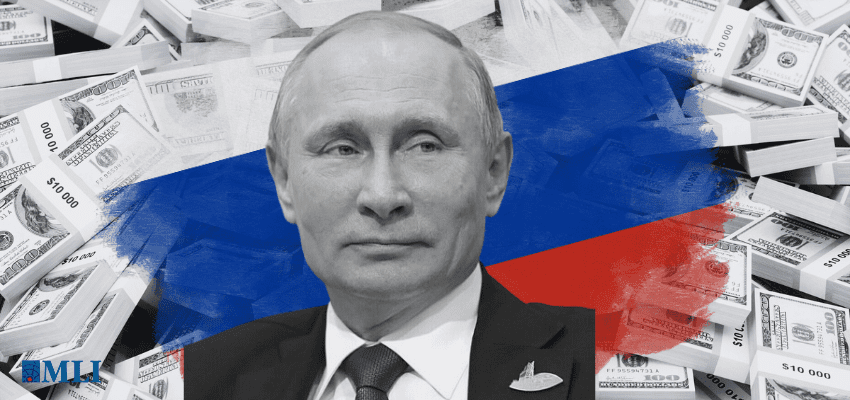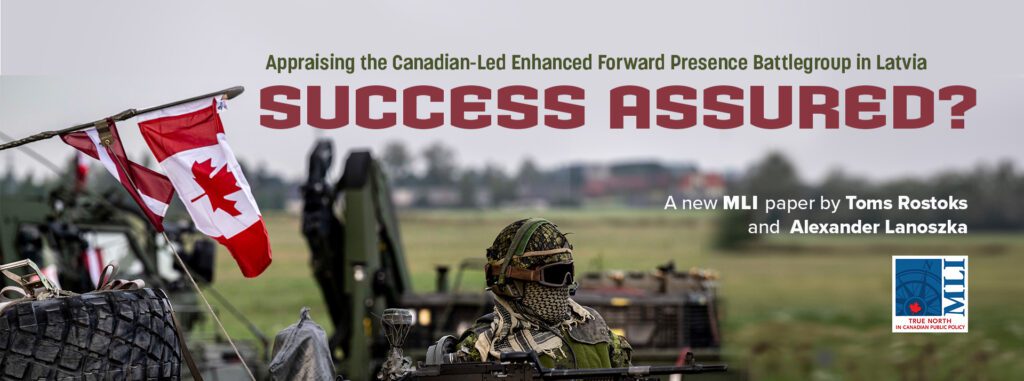By Aaron Gasch Burnett, June 6, 2024
What if the West could make a powerful strategic move that would immediately provide hundreds of billions in resources to Ukraine – at no cost to Western taxpayers – and at the same time discourage other dictatorships from invading their neighbours?
It already can.
Furthermore, Canada could help push that decision – if it felt like leading.
Canada will meet with its other G7 counterparts in mid-June to decide whether – and how – to seize some C$450 billion in Russian state assets frozen in Western countries at the beginning of the war. Yet despite the vast sums of Russian money – rather than taxpayer funds – available, some countries are still hesitating. Canada is one of those countries.
As I’ve argued before, seizing Russian assets had the potential to be Canada’s bright spot for supporting Ukraine – amidst a raft of disappointments including our own rickety military equipment and an underwhelming contribution to Czechia’s ammunition initiative.
By contrast to its inadequate military contributions, Canada got out to an early lead on asset seizure in 2022, when it quickly passed legislation allowing the assets of oligarchs close to Putin to be confiscated. The next step was then to amend the legislation to allow the Canadian government to confiscate frozen Russian central bank reserves held in Canadian dollars. In October 2023, such an amendment went through its final reading.
The Trudeau government has been sitting on it ever since.
So why would a Cabinet that got off to such an early start on seizing a war chest of Russian money that could help Ukraine immediately now choose to sit on it? In effect, the government is telling Canadian and broader Western taxpayers it expects them to foot the entire bill for supporting Ukraine while dirty Russian money remains locked away.
You can infer the reasons from April’s budget update – announced around the same time as US Congress approved the REPO Act, which authorizes the president to seize Russian state assets denominated in US dollars.
“Budget 2024 announces the government’s intention to advance engagement with international partners, particularly the G7, to identify additional avenues to hold Russia to account for its full-scale invasion of Ukraine. These discussions, and any consensus achieved, will be used to advance necessary amendments to Canada’s sanctions regime,” the announcement read.
In other words, Canada doesn’t intend to lead at all – even on a file where it built a clear early advantage. It didn’t even intend to wait for the Americans to go first with passing REPO, before perhaps passing its own legislative amendment second to back Washington up in discussions with reticent Europeans. Canada will simply wait, figure out what everyone else is doing – and follow along. It’s the very opposite of leadership.
In the meantime, European G7 partners remain afraid that seizing Russia’s state assets will break international law and have economic ramifications for the euro and other western currencies. That’s despite around a dozen leading international lawyers recently arguing that confiscating Russia’s assets is a legal response to Putin’s aggression.
On the economic front, spooked Europeans are tying themselves in knots to come up with “creative” solutions, such as confiscating the interest only or using the frozen assets as collateral for a loan, instead of making the necessary choice of confiscating the entire C$450-billion sum.
This comes from worries, including from European Central Bank head Christine Lagarde, that confiscating Russia’s frozen central bank reserves would stoke capital flight and destabilize the Euro – as other countries like Saudi Arabia and China have threatened to dump their Western currency reserves. But many experts say this fear is largely overblown.
“Around 89 percent of foreign currency reserves worldwide are held in G7 currencies – including the Canadian dollar. The dominance the West has here is simply overwhelming,” says Anna Vlasiuk, a fellow at the Kyiv School of Economics who specializes in international sanctions. “Some countries can threaten to pull out of Western currencies if the G7 confiscated Russia’s reserves. But in practice this is virtually impossible. Furthermore, any economic effects would’ve already happened when these funds were frozen two years ago.”
Legal, economic, and strategic advice aside – European G7 governments are looking for a way out. Rather than pushing back, Canada has essentially signalled that it’s prepared to give them one. Given the government continues to say that it supports full confiscation – it clearly would prefer a different outcome. But it remains unprepared to put even a slight amount of political or diplomatic capital on the table in public to help achieve it – even to support American proposals.
It’s not clear why Canada hesitates. But given the strategic impact of a decision to seize Russia’s state assets – both to help Ukraine win the war and to keep Russia in check – now is not the time to be shy about pushing Canada’s European partners. Ukraine’s survival and Russia’s defeat are far more important than whether Canada can make nice with Europe on this question.
Canada’s chances to lead on the world stage are getting rarer. On Russian asset seizure, it could help Ukraine get a war chest, save some costs for stretched Canadian taxpayers, and help introduce a whole new concept in international security – financial deterrence. If dictatorships know that invading their neighbours might mean that Western countries will seize their state assets – they may think twice about it in the future. That’s worth playing a little diplomatic hardball, instead of soothing statements in budget updates that cover up watered down proposals.
Instead, Canada is signalling that it doesn’t want to lead internationally even when it’s in a strong position to do so. If Kyiv falls while countries like Canada sit on billions in an adversary’s money, history’s judgment of us will be damning. And we will deserve it.
Aaron Gasch Burnett is a German-Canadian journalist and security analyst based in Berlin. He is the co-host of the BerlinsideOut podcast on German foreign policy.
This article was published with support from Konrad-Adenauer-Stiftung Canada.







